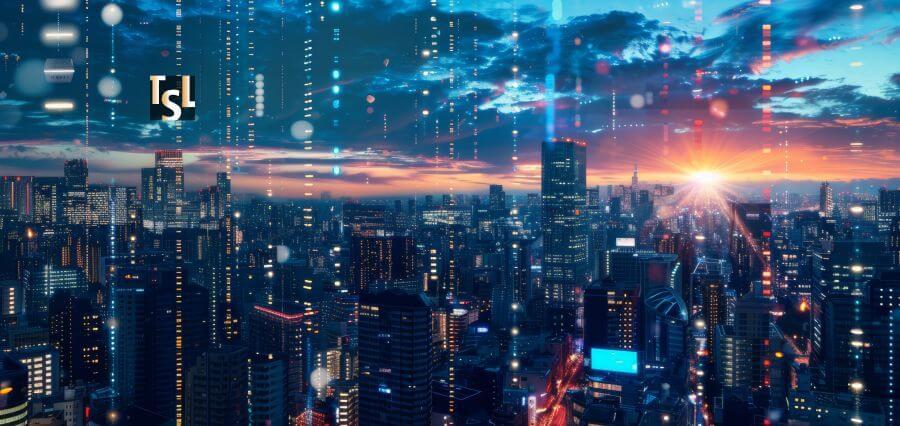How AI Is Transforming Urban Living

Artificial Intelligence (AI) is increasingly becoming a cornerstone in the evolution of urban environments, offering innovative solutions to long standing challenges. By integrating AI into various facets of city life, urban areas are transforming into more efficient, sustainable, and livable spaces. This article explores how AI is reshaping urban living, focusing on key areas such as transportation, energy management, public safety, and waste management.
Read More: https://thesiliconleaders.com/how-ai-is-reshaping-urban-living/
Efficient Transportation Systems
Urban transportation has long been plagued by congestion and inefficiencies. AI addresses these issues through intelligent traffic management systems that analyze real-time data from sensors and cameras to optimize traffic flow. For instance, AI-controlled traffic lights can adjust their timings based on current traffic conditions, reducing congestion and improving commute times. Cities like Barcelona have implemented such systems, resulting in a 30% reduction in congestion and a 20% decrease in travel time.
Public transportation also benefits from AI through real-time tracking and demand analysis. By monitoring usage patterns, AI can help in rescheduling services to match demand, ensuring efficient and timely public transit options for residents.
Sustainable Energy Management
AI plays a crucial role in promoting sustainability within urban settings. Smart grids powered by AI can reallocate energy resources based on real-time usage patterns, minimizing waste and enhancing efficiency. By analyzing data from various sources, AI systems can recommend energy-saving measures and optimize the use of utilities like water and electricity, contributing to reduced carbon footprints and cost savings for both cities and residents.
Enhanced Public Safety
Public safety is another domain where AI is making significant strides. AI-integrated security systems can analyze data from sensors and cameras to detect anomalies and predict potential crime hotspots, enabling proactive measures to enhance safety. This data-driven approach allows for the design of safer urban spaces and more efficient emergency responses, ultimately improving the quality of life for city dwellers.
Optimized Waste Management
Effective waste management is vital for maintaining clean and livable urban environments. AI contributes by enabling smart waste collection systems that use sensors to monitor bin fill levels, ensuring timely collection and preventing overflows. Cities like San Francisco have adopted AI-driven waste management solutions, leading to reduced collection costs and enhanced urban cleanliness. By optimizing collection routes based on real-time data, these systems also contribute to lower emissions from waste collection vehicles.
Data-Driven Urban Planning
AI facilitates more informed urban planning decisions by providing insights derived from vast amounts of data. City planners can analyze patterns in traffic flow, energy consumption, and population movements to design urban spaces that are more efficient and responsive to residents' needs. This proactive approach enables authorities to anticipate and mitigate future challenges such as congestion and pollution, fostering sustainable urban growth.
Integration with Emerging Technologies
The combination of AI with other emerging technologies, such as the Internet of Things (IoT) and digital twin technology, creates a networked urban ecosystem. Digital twins—virtual replicas of physical urban environments—allow city officials to simulate different scenarios based on real-time data, testing strategies in a risk-free virtual setting before implementation. This integration enhances decision-making processes and promotes sustainable urban development.
Conclusion
The integration of AI into urban living is revolutionizing how cities operate and how residents experience urban life. From optimizing transportation and energy use to enhancing public safety and waste management, AI offers tools that make cities smarter, more sustainable, and more livable. As urban populations continue to grow, the adoption of AI technologies will be instrumental in addressing the complex challenges of modern urbanization, paving the way for a future where cities not only meet the needs of their inhabitants but also contribute positively to the global environment.
Source: https://thesiliconleaders.com/
- Art
- Causes
- Crafts
- Dance
- Drinks
- Film
- Fitness
- Food
- Games
- Gardening
- Health
- Home
- Literature
- Music
- Networking
- Other
- Party
- Religion
- Shopping
- Sports
- Theater
- Wellness


